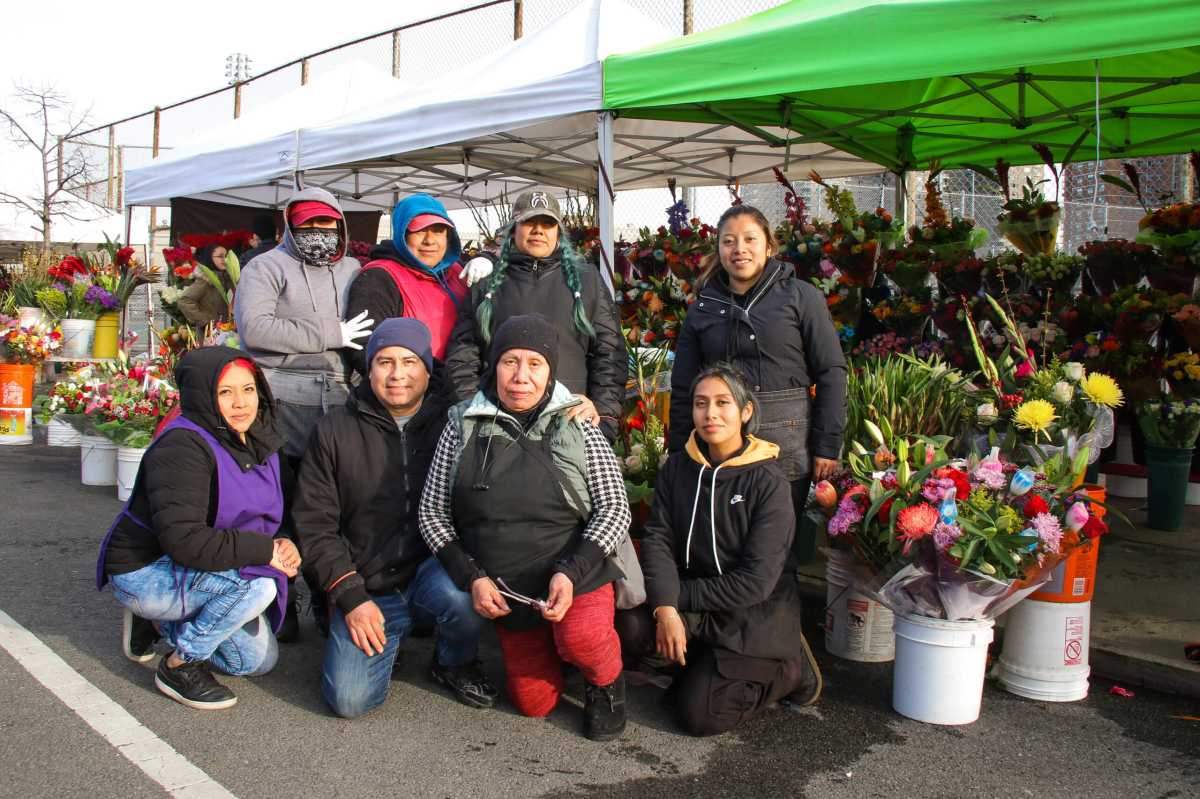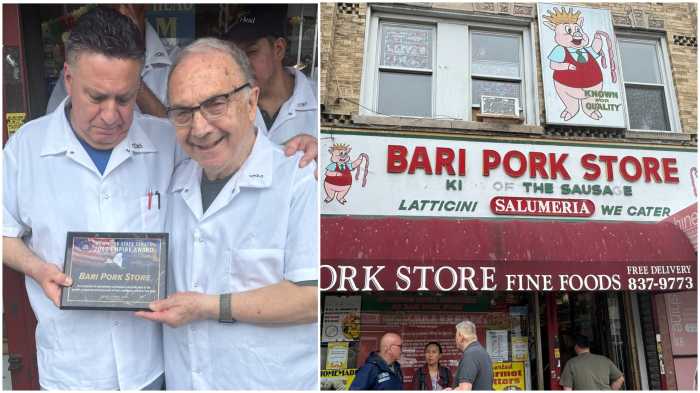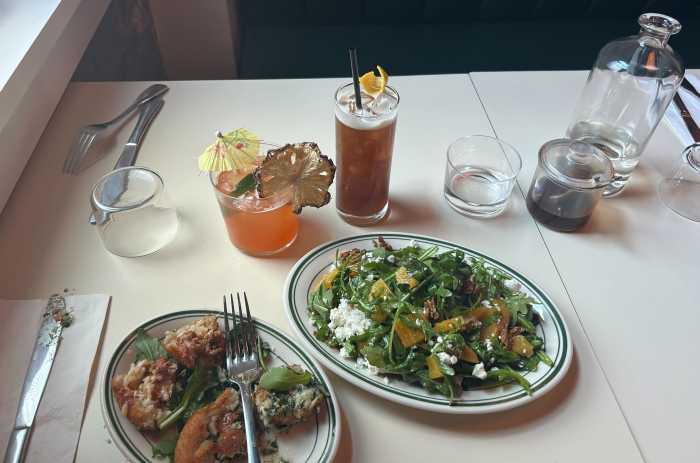Can the Belt Parkway ever be beautiful? Maybe not, but one family, who has been selling flowers beside the highway for years, is determined to try.
The Cuateco family runs a roadside flower stand called Mimosa Flowers — named for the eponymous bloomer in the legume family — housed under a tent on Shore Parkway in Coney Island, right beside both Rachel Carson High School (named for the pioneering environmentalist) and, more crucially, Exit 7 off the eastbound Belt Parkway. The stall provides a welcome respite of vibrant color amidst the sea of concrete that defines the highway.
Despite the seemingly counterintuitive location of a flower stand wedged between a high school and a highway, the business has succeeded for 25 years by drawing in customers driving further east in Brooklyn and toward Queens and Long Island, who can disembark the freeway, stop their vehicle on the access road, peruse some flowers, and get back in their car and continue their journey all while barely missing a beat en route to their special someone.
“It’s very visible when you come down from the highway down here,” said Odette Cuateco, whose parents founded the stand and who now helps run it. “It’s mostly out of luck. You find a place and say, ‘Oh, that looks like a good place to sell flowers.’ And that’s how we started. You know, with every business, it’s just people see you, and they stop.”
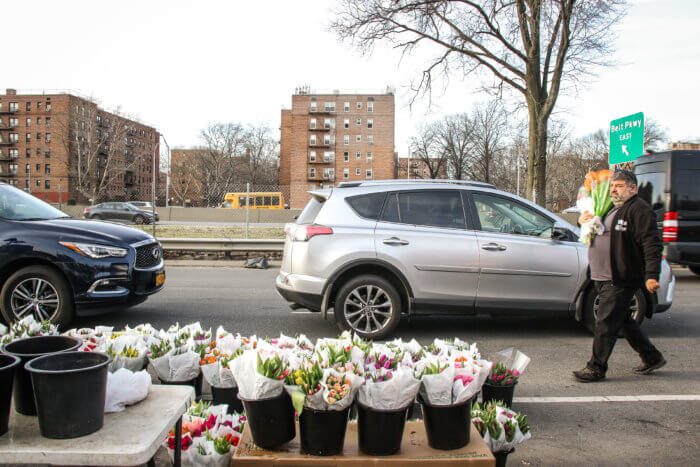
Though out-of-the-way for subway riders, who have to schlep north from the Ocean Parkway or New York Aquarium Q train stops to reach it, its convenience for drivers rumbling along the Belt Parkway has clientele returning over and over.
“I work in Brooklyn, live in Queens. I come here on the way home,” said Scott Ryan, who was buying roses at Mimosa on March 10. “It makes the wife happy. You pull off the Belt, pull over, and have fun.”
Customers are also attracted to the low prices compared to traditional florists, and the ability to buy individual flowers rather than expensive bouquets in some cases. For the most part, a single rose costs $3.
“Can’t get a better deal than that,” Ryan said.
The bouquets, meanwhile, are constructed on the spot with love by Mimosa’s flower maestros.
The business was started by Cuateco’s late father Fernando Cuateco, who worked for a florist after immigrating to New York from Mexico, before deciding to start his own shop. The family began selling flowers from a shopping cart in Midwood, and sold in a few places before settling on the spot they have now. They still set up pop-ups in Midwood during Shabbat.
Business was slow on Thursday since Mimosa was coming off one of its busiest days of the year, International Women’s Day, which fell on March 8. The holidays, which in the flower business include Valentine’s Day and Mother’s Day, are when everyone shows up, from nearby high school students looking to impress a crush, to drivers rushing to snag a gift for their beau (or their mameau) before day’s end, clogging traffic at Exit 7 and bringing extensive cash into Mimosa’s coffers.
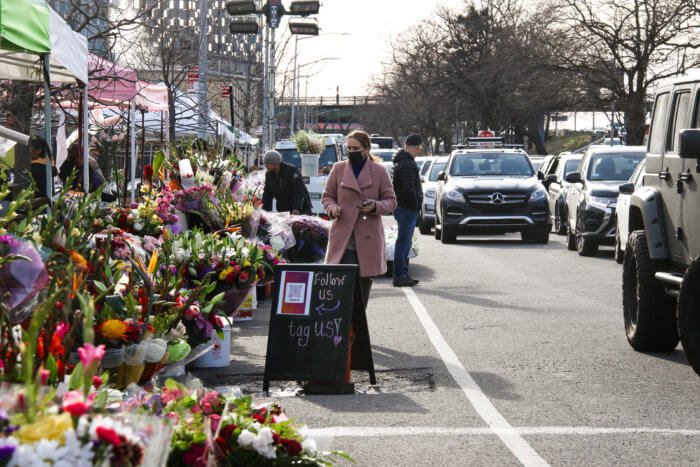
Also showing up are folks looking to capitalize on the location only on its busiest days: a number of other vendors set up shop right next to the business as the customer load swells, and some offer lower prices, but many clientele still stick with Mimosa.
While the family keeps its blooms inexpensive, that doesn’t mean the enterprise is cheap. The family shopped around until finding a flower wholesaler from Ecuador to source its flowers, but despite operating from a tent and not paying rent at their place of business, Mimosa is not protected from the high cost of commerce in New York City.
To protect the flowers from inclement weather, they rent a warehouse where they can store them in a fixed-temperature, and at the stand have to close the tents from the elements and install heater tanks in the cold; they also have to pay for a flower vending license, spend thousands of dollars every year for the right to use a fire hydrant as their source of water, and, of course, have to pay taxes.
“People think just because we’re outside, we don’t need permits,” Cuateco said. “But we do. There’s money that goes into the business. It’s not just because we’re outside, everything is free and we don’t pay taxes. We pay our taxes every three months. It’s a business.”
The family would like to expand their business, and specifically would like to expand its footprint on social media platforms like Instagram. But they don’t intend to give up their tent for a brick-and-mortar establishment, lest their steady flow of customers erode.
“It’s just that people like convenience,” Cuateco said. “It’s convenient for them to not look for parking, because they just stopped here, they get the flowers, they get back on the highway.”


